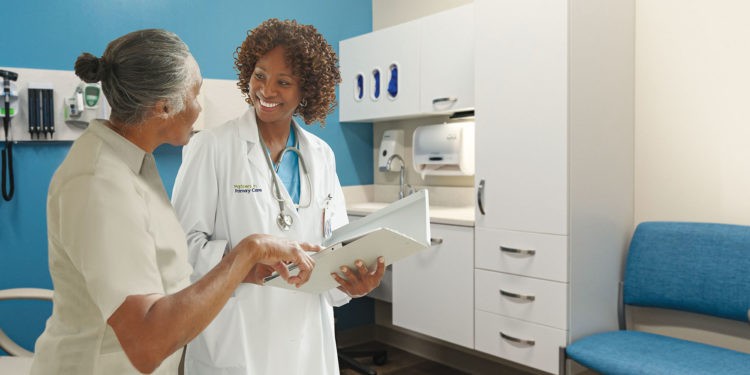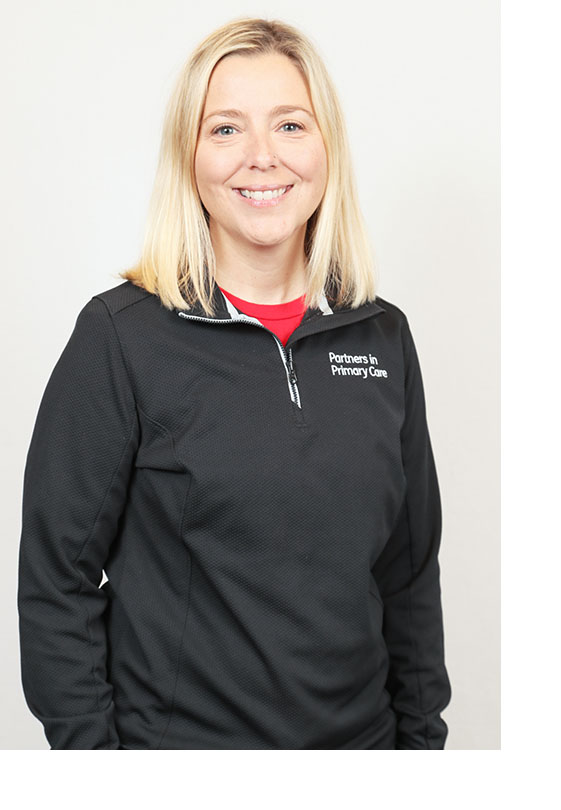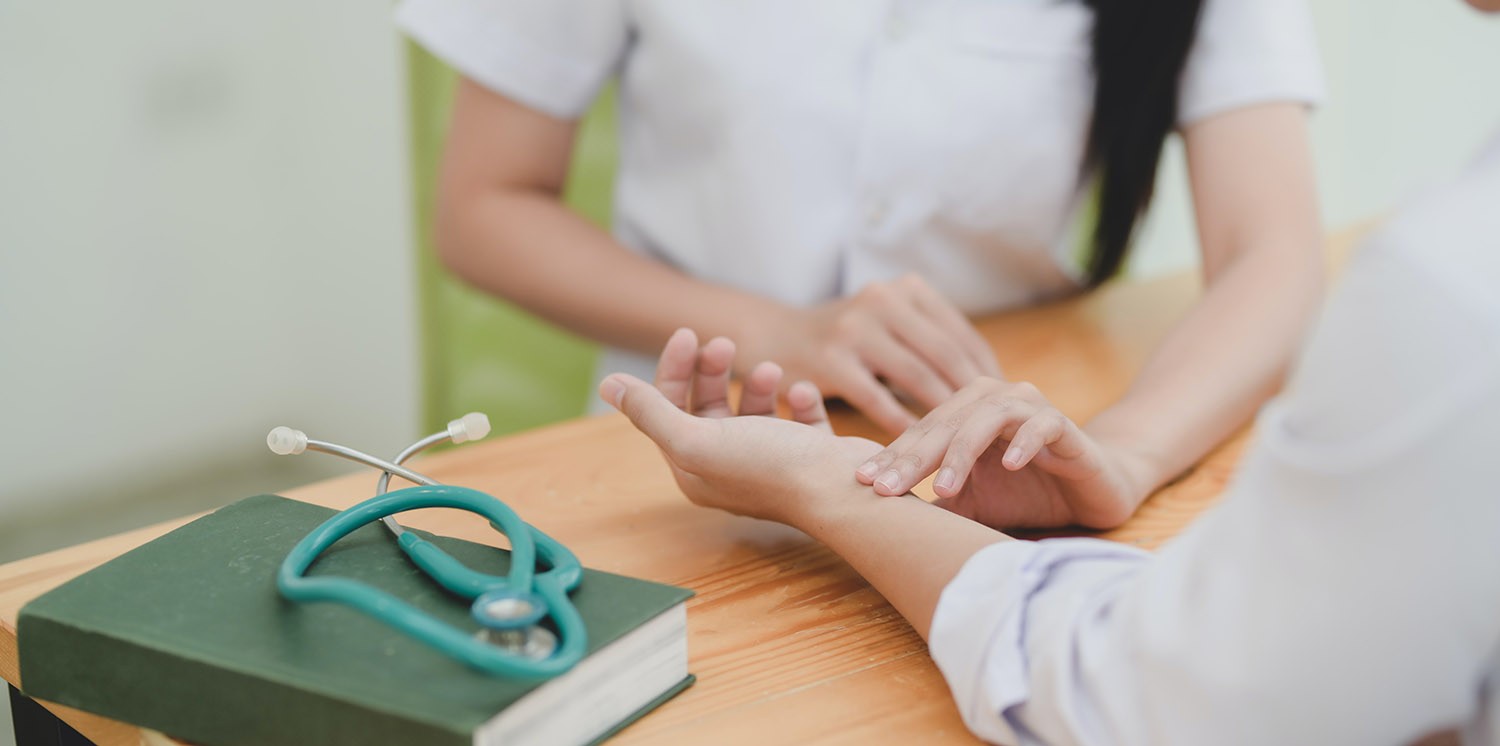Seniors and the Pandemic

Working to Expand the View from the Stress of Isolation to “We’re in this Together!”
With challenges and change at the forefront of the coronavirus pandemic, seniors can still embrace cautionary measures without losing much-needed social connection and interaction.
Story by Ann Butenas | Intro photo courtesy of Partners in Primary Care
Isolation for older adults manifests in many forms: shrinking social circles, poor health, life changes, and even transportation challenges. If such isolation leads to loneliness, it can have a truly devastating impact on one’s health and quality of life. Factor in a global pandemic that further tightens the knot of lost social connections, and you have the perfect storm for increased feelings of stress, anxiety, depression and loneliness.

While the geriatric population (those over the age of 65) has been designated as one of the most at-risk groups for developing serious illness from COVID-19, this novel virus has also cast a spotlight on how this period of social isolation has taken its toll on the mental and emotional well-being of these individuals.
For those already predisposed to feelings of loneliness, depression and anxiety, the pandemic only serves to exacerbate those issues, perhaps escalating to a mind full of fear and even catastrophic thoughts. Additionally, the COVID-19 safety guidelines to self-isolate have created new health risks which have left many older adults even more socially isolated and inactive than ever before.
Fortunately, there are ways to mitigate the problems and bring a sense of comfort, calm, and hope back to the forefront. The medical experts at Partners in Primary Care are doing just that, and in the process are lifting spirits and providing the necessary momentum, enthusiasm and optimism to push through this novel time in our lives.
As a leader in senior-focused primary care, this group of health professionals focuses on issues that matter most to seniors, tailoring their services to the unique needs of those traveling the exciting journey through the afternoon of life. In addition to focusing on the day-to-day health issues of seniors, whether chronic or preventive, this group has now been tasked with providing optimum support for its patients during the coronavirus pandemic, not only in terms of their physical health, but also with regard to their mental and emotional well-being.
 When the pandemic first made headlines, the Partners in Primary Care Team understood the impact it would have on everyday life for their patients. As such, the nurses activated a robust outreach campaign by proactively calling patients regularly to simply touch base with them.
When the pandemic first made headlines, the Partners in Primary Care Team understood the impact it would have on everyday life for their patients. As such, the nurses activated a robust outreach campaign by proactively calling patients regularly to simply touch base with them.
“We would advise them that maybe they are not experiencing feelings of increased loneliness and isolation now, but at some point in the future, they might,” indicated Amber Eastabrooks, Nurse Care Coach/Care Management Supervisor. “We emphasized it is normal to feel this way and that, as their partners, we are available for them.”
Loneliness doesn’t always equate to lack of company; it can also result from the lack of purpose.
 As Medical Director of all eight Partners in Primary Care centers within the metro area, Dr. Stephen Salanski keeps one agenda in clear focus.
As Medical Director of all eight Partners in Primary Care centers within the metro area, Dr. Stephen Salanski keeps one agenda in clear focus.
“Our goal is to keep our patients as healthy as we can through the valuable care we provide,” he noted. That attention to health in these past several months has moved the diagnostic needle in a rather dramatic way with respect to the needs of patients on an emotional level.
“The key things we’ve been telling people are to isolate themselves from others who could be contagious and stay home as much as possible,” emphasized Dr. Salanski. “However, the longer this pandemic goes on, the harder that is to do.”
As a means to bridge that gap, Dr. Salanski and his team encourage seniors to keep their social and familial relationships strong. If anything, simply call to check on friends and family members a couple of times a week.
“We also encourage a daily routine, which includes regular meals and taking their medications,” stressed Dr. Salanski. “We also suggest they take time to read, meditate, pray and engage in other calming routines so they are not focused solely on COVID-19.”
Dr. Salanski emphasized the importance of exercise as an antidote.
“Try to get physical activity every day,” he suggested. “If the weather is nice, go for a walk outside. We feel that is fairly safe because you can maintain that recommended six-foot distance. However, if that is not possible, it is best to wear a mask.”
Dr. Salanski indicated that, in addition to helping with cardiovascular fitness and weight management, regular exercise releases those feel-good endorphins, a much-needed supplement during these stressful and uncertain times.
“If you cannot walk outside, then walk the halls in your apartment building or even just walk around your apartment,” he said.
Even if you can just sit on your porch or walk to your mailbox, a daily dose of fresh air and sunshine will do wonders for your mood. Other activities to stimulate the mindset include sewing, crafting, puzzles and music.
“The focus is to be as safe as possible as we try to maintain our sanity when isolating now more than we ever have in the past,” he emphasized.

The holidays are the perfect time to make life better for those around us.
Of increasing concern as the holidays approach is handling gatherings with family and friends. Dr. Salanski strongly encourages staying within your own bubble with close, immediate family.
“If you interact with extended family, there is a greater likelihood for asymptomatic or pre-symptomatic COVID-19 exposure,” he warned.
As such, he recommends small gatherings, wearing masks and employing safety measures when eating. He suggested having different family units sit at their own tables and perhaps have each family bring their own food. If anyone feels sick with any of the COVID-19 symptoms, then they should stay home. Be sure to do temperature checks at any gathering and provide hand sanitizer for all.
“This is a time when new traditions might come about,” stated Eastabrooks. “We know it will be a challenge, but we all need to recognize and plan for how we can keep families engaged and connected, keeping in mind the bigger picture of staying healthy and respecting the risk COVID-19 brings.”
Creative ways to connect while still being physically distanced: adapting to technology
Virtual visits offer health care providers a way to see how patients live in their home and interact with their environment, allowing caregivers to positively influence the health of each patient. Partners in Primary Care offers virtual visits with its patients who are tech-savvy or even for those who desire to learn. The practice also conducts Facebook Live educational programs.
“We want to be that resource for good consistent information,” stated Eastabrooks. “Our phone call might be the only interaction our patients have that day, so we realize the importance of that touch point.”
While there will be inevitable bumps along the road as we continue to navigate through this unprecedented territory, just remember to wear a mask if you are out in public; physically distance as much as you can; and follow the rules as outlined by local health officials.
Just as anxiety and loneliness can be contagious and will compound when allowed to feed off one another, so are compassion and kindness. Even just by connecting virtually, we can continue that necessary link of connection and encourage the social cohesion necessary for emotional and mental well-being.
For more information on Partners in Primary Care, please see partnersinprimarycare.com or call 816-608-8172.



